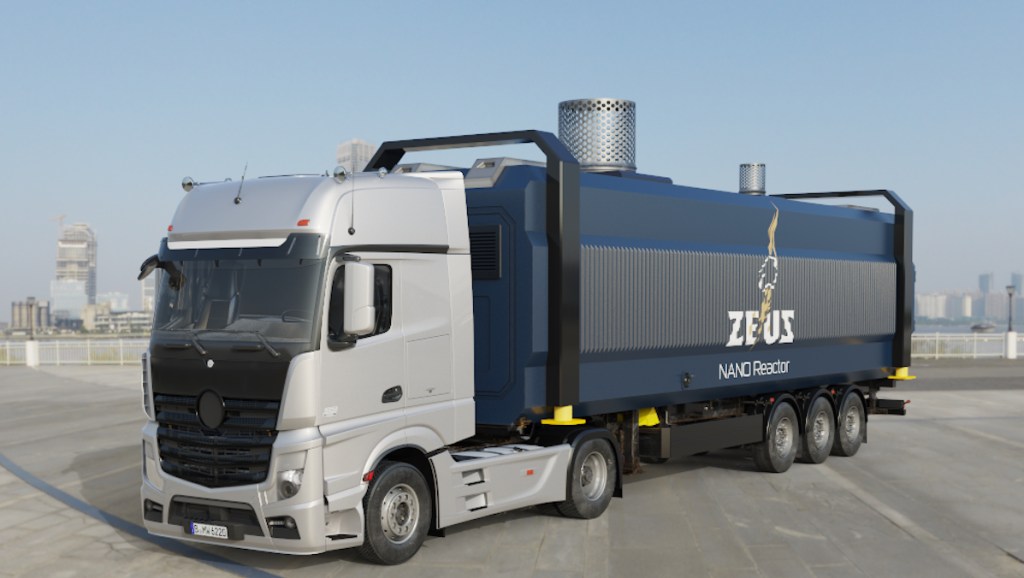[ad_1]
In the debate over energy, the effect on climate is certainly important, but so is the impact of geopolitical tensions on energy availability. Some experts believe nuclear energy offers a path toward energy independence, but public perception and exorbitant licensing costs have gotten in the way. NANO Nuclear Energy is hoping to change that.
NANO Nuclear Energy adds a new level of convenience to nuclear energy — it’s currently developing portable, on-demand nuclear reactors for remote locations. It’s also aiming to fabricate and deliver nuclear fuel and offer consulting services for those in the nuclear industry.
NANO’s founder Jay Yu believes that, in many ways, nuclear power is the future of energy — and energy independence in particular. He notes that recent events have alerted more people than ever to the importance of the domestic creation of nuclear power. And James Walker, NANO’s CEO, agrees.
“The war in Ukraine set off a chain reaction affecting global energy dynamics, particularly in the realm of nuclear energy,” mentions Walker. “Before the conflict, the United States sourced a significant portion of its nuclear material from Russia. However, the onset of the war in Ukraine disrupted these arrangements, as geopolitical tensions escalated and sanctions against Russia were implemented.”
“This upheaval meant that the U.S. and other western countries could no longer rely on Russian nuclear material, prompting a need to find alternative sources to meet their domestic nuclear fuel requirements,” he continues. “This disruption underscored the vulnerabilities in supply chains and the strategic importance of energy independence.”
Energy sovereignty is a critical part of maintaining a country’s independence, so naturally, there’s an increasing interest in expanding nuclear power in the United States.
However, Walker notes that would-be innovators face significant challenges.
“Nuclear power in the U.S. is one of the most expensive in the world,” he says. “It is often said that nuclear power is cheap, but the paperwork is expensive. That creates a large upfront capital cost, which then requires a lot of financing. The financing cost can be a big portion of the entire project cost.”
With that kind of capital requirement, it’s no wonder nuclear energy hasn’t proliferated as much as proponents would like. But now, a new law — known as the Advanced Nuclear Technology Development Act (ADVANCE Act) — is aiming to loosen existing restrictions.
This act, which was signed into law in July, proposes a reform of the current Nuclear Regulatory Commission review process, the implementation of incentives for nuclear developers, the promotion of public-private development partnerships. It also aims to provide support for designers of advanced reactors.
The incentives offered through the act — much like the tax credits and incentives that came with solar power a few years ago — will undoubtedly lead to faster, more advanced innovation in the field.
“Grants, tax credits, loan guarantees will alleviate the financial burden on nuclear developers,” Walker says. “These incentives aim to lower the capital costs and make financing more accessible and affordable.”
Lowering financial barriers is certainly a large part of what the law is trying to do. However, Walker explains the ADVANCE Act’s inclusion of public-private partnerships is another way to boost the nation’s innovation potential.
“The act promotes collaboration between the federal government, industry, other stakeholders to leverage resources and expertise,” he says. “This approach is intended to drive innovation and reduce the financial risks associated with nuclear projects.”
Of course, there’s another less quantifiable barrier to be mindful of — public perception. Unfortunately, when many people think of nuclear power, their minds go straight to some of the world’s most infamous nuclear power plant disasters.
“The public perception is that it is dangerous and dirty,” Walker says. “Public perception has led politics, which have impeded nuclear from being expanded.”
Walker notes that nuclear power is not nearly the hazard many make it out to be.
“The difference between public perception and reality is enormous,” he says. “If deaths/GWh are examined, nuclear power is safer than even wind and solar. It also generates the least amount of waste and is carbon-free energy.”
The signing into law of the ADVANCE Act, could help dispel some of the negative sentiment surrounding nuclear power and even usher in a whole new era of green energy. And because the ADVANCE Act’s goals are so aligned with those of NANO Nuclear, it just might open up a new era for Walker’s company, too.
“The law’s emphasis on advanced reactors aligns with Nano Nuclear Energy’s focus on innovative, portable microreactor technology,” he says. “Support for research, development, demonstration projects under the act can accelerate the advancement of our microreactor designs. They’re going to be safer, faster, more market-ready.”
VentureBeat newsroom and editorial staff were not involved in the creation of this content.
[ad_2]
Source link

